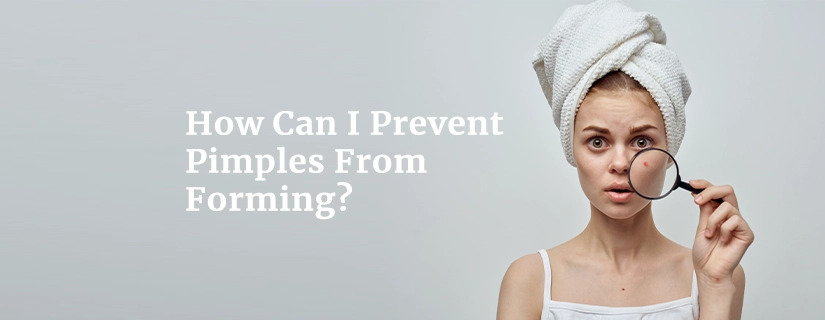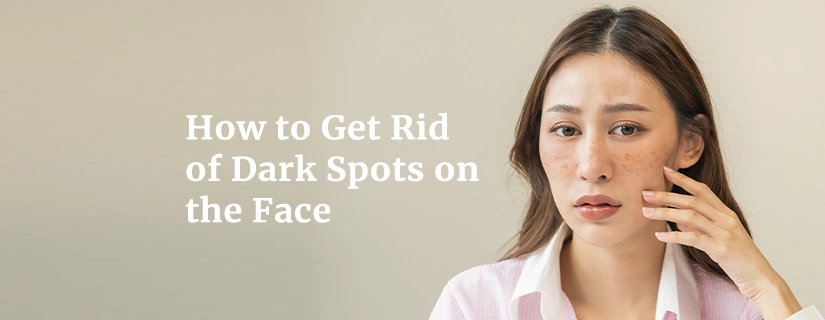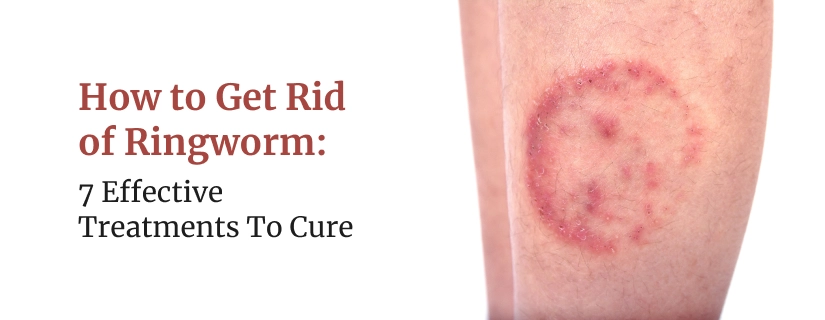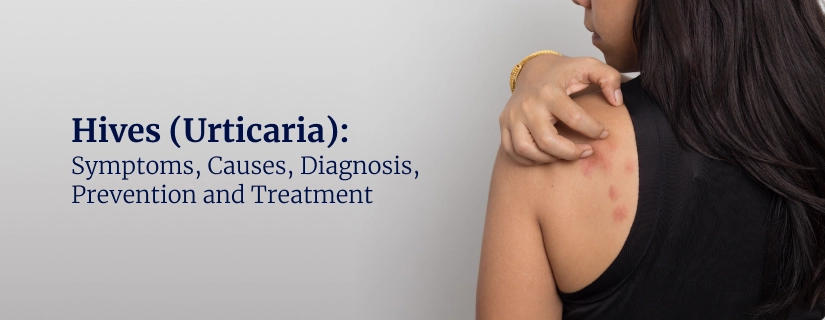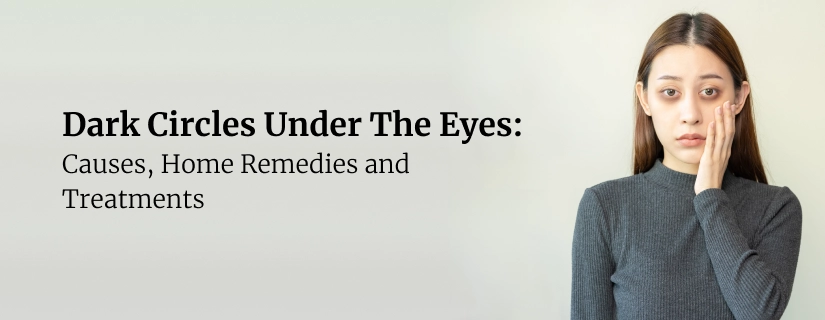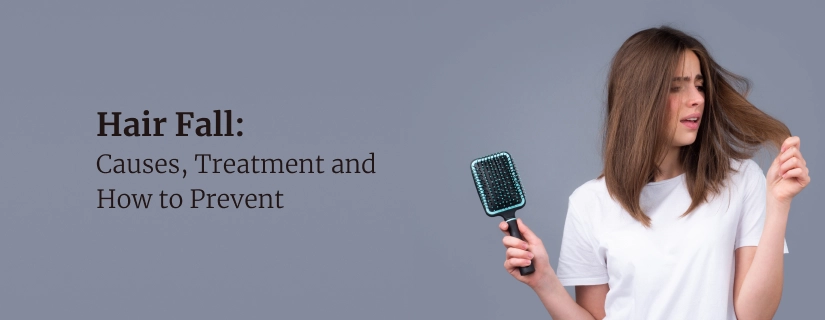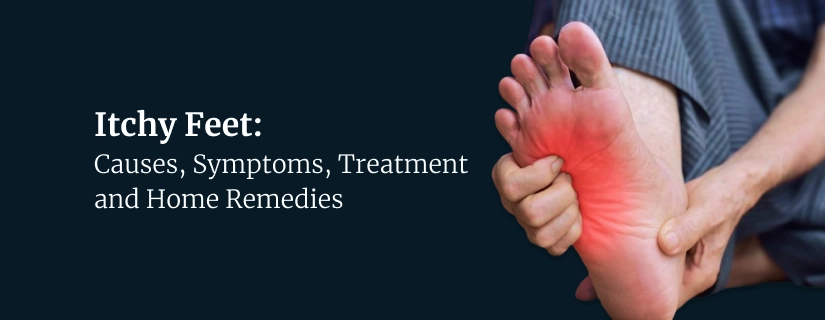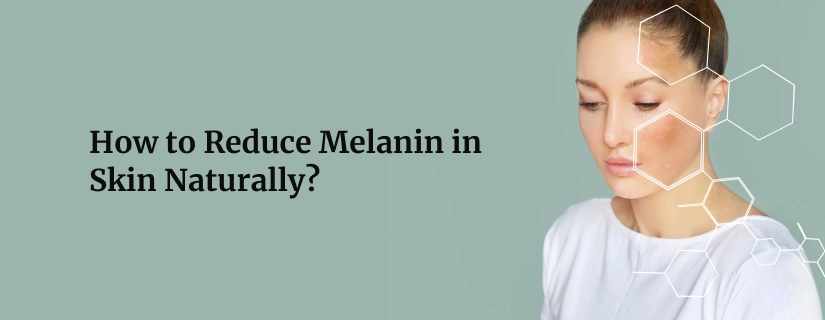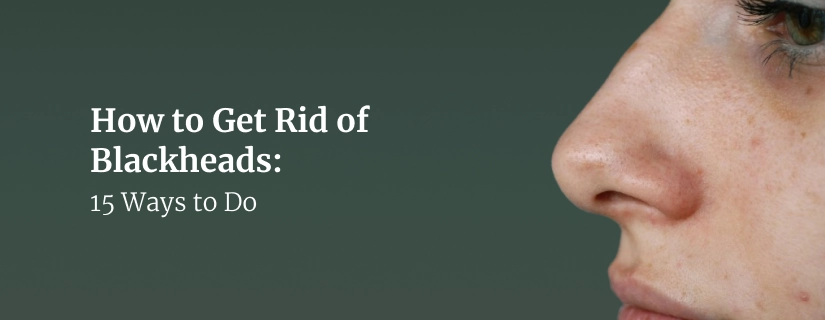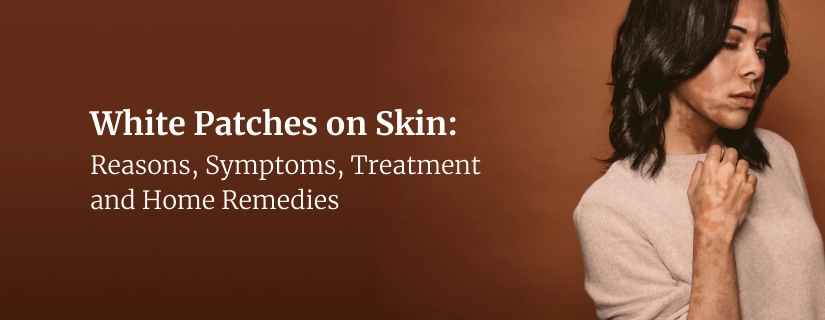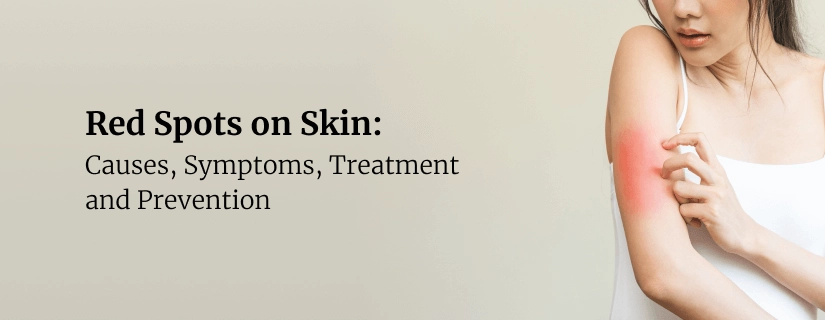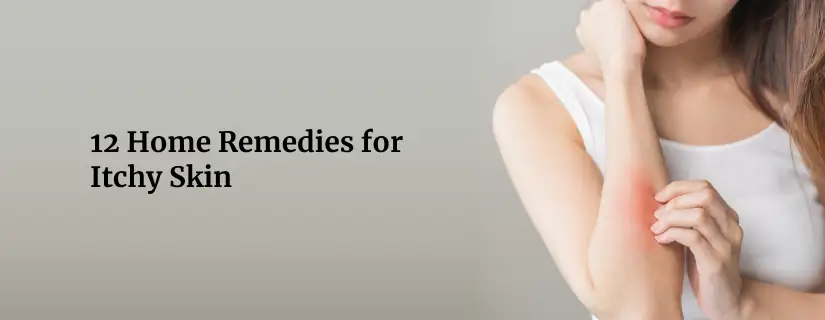-
Doctors
-
Specialities & Treatments
Centre of Excellence
Specialties
Treatments and Procedures
Hospitals & Directions HyderabadCARE Hospitals, Banjara Hills CARE Outpatient Centre, Banjara Hills CARE Hospitals, HITEC City CARE Hospitals, Nampally Gurunanak CARE Hospitals, Musheerabad CARE Hospitals Outpatient Centre, HITEC City CARE Hospitals, Malakpet
HyderabadCARE Hospitals, Banjara Hills CARE Outpatient Centre, Banjara Hills CARE Hospitals, HITEC City CARE Hospitals, Nampally Gurunanak CARE Hospitals, Musheerabad CARE Hospitals Outpatient Centre, HITEC City CARE Hospitals, Malakpet Raipur
Raipur
 Bhubaneswar
Bhubaneswar Visakhapatnam
Visakhapatnam
 Nagpur
Nagpur
 Indore
Indore
 Chh. Sambhajinagar
Chh. SambhajinagarClinics & Medical Centers
Book an AppointmentContact Us
Online Lab Reports
Book an Appointment
Consult Super-Specialist Doctors at CARE Hospitals
Common Skin Infections and How to Prevent Them
Updated on 19 May 2023
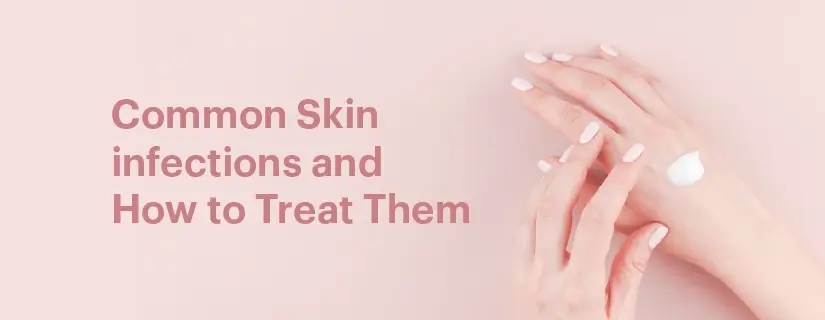
Skin is the largest organ of our body and performs a vital function of protecting us (our internal organs) from infections and any damage. However, sometimes we suffer from skin conditions that are common. Skin infections can be caused by bacteria, parasites, fungi, or viruses and can happen anywhere on the body, including the scalp.
Types of Skin Infections
Skin infections are classified into several categories, each of which is caused by a distinct pathogen or trigger. Here are the types of infections:
1. Bacterial Infections: These are the infections caused by bacteria.
- Impetigo: A highly contagious bacterial skin illness that causes red sores to erupt and form honey-coloured crusts.
- Cellulitis: A bacterial infection that affects the deeper layers of the skin, causing redness, swelling, and pain.
2. Viral Infections:
- Herpes Simplex: This virus causes cold sores or fever blisters around the mouth or genitals.
- Chickenpox/Shingles: The varicella-zoster virus causes chickenpox at first, but it can reactivate as shingles later in life, resulting in a painful rash.
3. Infections Caused by Fungi:
- Athlete's Foot: A fungal infection on the foot that causes itching, burning, and damaged skin.
- Ringworm: A ringworm is a kind of fungal illness that causes circular, red, scaly areas of skin on the body.
4. Infections Caused by Parasites:
- Scabies: A rash and extreme itching caused by microscopic mites.
- Lice Infestation: Itching and irritation caused by parasitic insects that infest the scalp, torso, or pubic area.
5. Dermatitis and Allergic Reactions:
- Touch Dermatitis: Inflammation of the skin caused by touch with an irritant or allergen.
- Eczema (Atopic Dermatitis): A chronic skin disorder that causes itchy, irritated patches of skin.
6. STIs (Sexually Transmitted Infections):
- Syphilis: A bacterial infection that results in a painless sore and a rash.
- Genital Warts: Warts in the genital area caused by the human papillomavirus (HPV).
Others include:
- Folliculitis: Hair follicle infection or irritation.
- Boils: Infected hair follicles or oil glands generate painful, pus-filled lumps.
If you suspect a skin infection, seek medical attention immediately for accurate diagnosis and treatment. Depending on the type of infection, treatment may involve antibiotics, antifungal medications, antiviral drugs, or other particular treatments as prescribed by a healthcare practitioner.
Common Skin Infections(त्वचा संक्रमण) and How to Prevent Them
Let's quickly review a few common skin illnesses and their treatment for skin infections:
1. Cellulitis
Bacteria cause many skin infections, and cellulitis is one such bacterial skin infection causing the skin to be inflamed, swollen, and painful to touch. Although a very common infection, cellulitis, if left untreated, can soon become a serious issue and spread rapidly. The infection begins as a reddish area that is swollen and warm to the touch. It usually affects the lower limbs of the body. It is caused when bacteria enter the bloodstream through cuts, open wounds, or bug bites.
Treatment: Major treatment of cellulitis includes an antibiotic and anti-inflammatory prescription from the doctor. In case the patient is not responding to oral antibiotics, they might have to be admitted to the hospital for intravenous antibiotics. Good wound care and personal hygiene are important to prevent a recurrence.
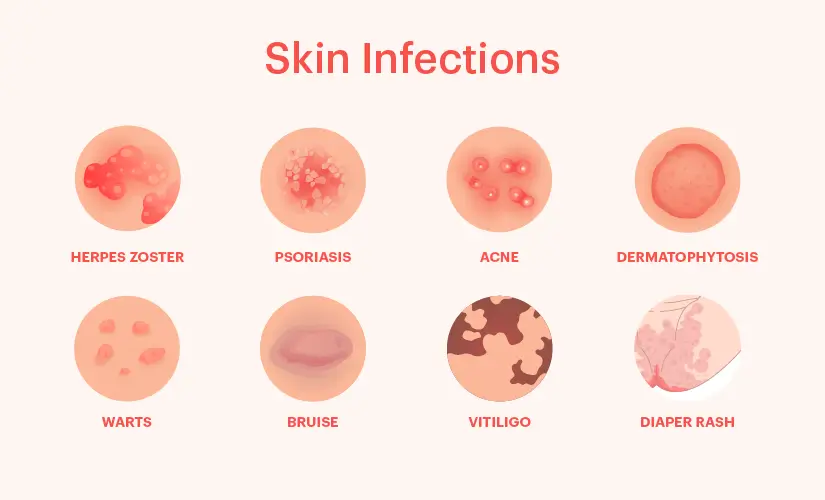
2. Ringworm
Ringworm is a skin infection caused by a fungus (not caused by any worm). It is called a “ringworm” as it is a ring-shaped rash, red and itchy. It usually causes itchiness, scaly skin, and the development of blisters or pustules. Ringworms are contagious and can spread through contact.
Treatment: Antifungal topical creams are usually beneficial in treating ringworms. If the infection is severe and chronic, patients will have to take antifungal pills prescribed by a doctor for quite some time.
3. Warts
Warts are another common skin infection caused due to the Human Papillomavirus (HPV). The infection causes rough, skin-colored bumps to form on the skin. You can get warts from touching someone who has them. Sometimes tiny black dots can also be visible with warts, which are small, clotted blood vessels. The virus causes an excess amount of keratin, a hard protein, to develop in the top skin layer (epidermis). However, they might usually not be dangerous but can be painful and embarrassing.
Treatment: However, since warts are contagious, ensure that if you are rubbing a wart with something, do not use that thing on any other body part. Also, if you are diabetic, do not try home remedies for warts on your feet. Instead, consult a doctor who may treat it with liquid nitrogen, medications, or in some rare cases, surgery.
4. Diaper Rash
Diaper rash is a common skin issue among babies. Sometimes adults who wear diapers can also face the issue. Diaper rash is usually caused when someone sits too long in a dirty diaper. The excrement in the diaper can cause bacteria and yeast to thrive, causing an infection. This can also aggravate the irritation if the appropriate action is not taken in time.
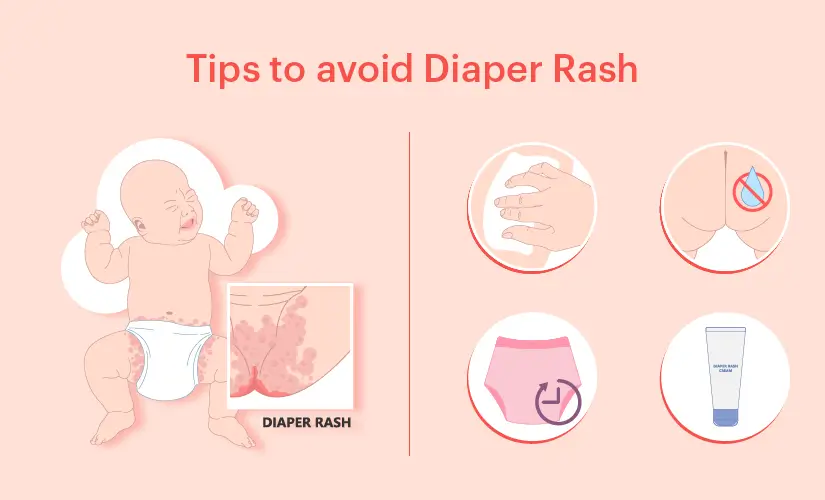
Treatment: There are several diaper rash creams available. Plant-based creams that contain aloe and calendula are especially helpful in fighting inflammation and bacteria that cause diaper rash. Other common topical medications include hydrocortisone for swelling, antifungal or antibiotic creams for infections, zinc oxide, etc. Be careful not to use any cream containing steroids for your baby without a doctor’s prescription.
5. Lice
Lice can be considered a parasitic skin infection. Lice infestation is most common in children. Lice are nothing but small insects that usually infest scalps. They feed on one’s blood and can be difficult to get rid of. They can be transmitted from one individual to another through direct contact.
Treatment: Head lice can be a nuisance as there are only limited options available to treat them. There are professional lice treatment centers that can help. The common methods to be used at home include wet combing, using essential oils like Tea tree oil, Anise oil, and ylang-ylang oil, and using smothering agents like mayonnaise, petroleum jelly, olive oil, butter, etc. The smothering agents are usually left overnight on one’s head with a shower cap to deprive the lice of air and kill them. Doctors may prescribe medication to kill lice. However, several follow-ups & re-treatments may be needed to get rid of them completely.
How to Prevent Skin Infections?
As the common saying goes, “An ounce of prevention is worth a pound of cure.” Taking simple precautions can help prevent the onset of common skin infections. If you are wondering how to prevent skin infections, read some simple ways that can help:
- Stay away from being in direct contact with people with contagious skin infections.
- If you have an open wound, dress it properly.
- Wash your hands frequently.
- Maintain good hygiene.
- If your baby or an adult is using diapers, make sure they are changed frequently.
- If you get a cut, scrape, or insect bite, wash it right away.
- Always wash and clean any shared items like toys, bedding, etc.
- If you have a school-going kid, keep checking their hair regularly for lice.
- Do not share personal use times like towels, clothes, hair brushes, etc.
- If you feel you have a skin infection, consult a doctor, especially if you are diabetic.
How Do You Get Rid of Skin Infections Naturally?
Here are some natural ways to help manage and alleviate skin infections:
- Gently clean the infected area with mild soap and warm water to remove debris and bacteria.
- Apply a warm compress to the affected area. This can help reduce inflammation and promote drainage.
- Coconut oil has antimicrobial properties. Applying it to the affected area may help soothe and promote healing.
- Apply pure aloe vera gel to the infected area for soothing relief, itas anti-inflammatory and antimicrobial properties
- Turmeric contains curcumin, known for its anti-inflammatory and antibacterial properties. Make a paste with turmeric and water, and apply it to the affected skin.
- Raw honey has natural antibacterial properties. Apply a thin layer to the infected area and cover it with a clean bandage.
- Stay hydrated and drink plenty of water to support overall skin health and hydration.
- Avoid irritants such as harsh soaps, detergents, or allergens that may worsen the infection.
- Maintain good hygiene to prevent the spread of infection and promote healing.
Conclusion
With the recent popularity of skincare, many people have started focusing on how to take care of their skin. Bedtime skincare routines have become a common norm. However, the focus here is mostly on facial skin. This causes the rest of the skin to become often neglected. Try taking care of your overall hygiene and skin. If you suspect a skin infection, do not wait for the problem to aggravate before consulting a doctor.
Home remedies may work in some cases. However, sometimes trying unapproved home remedies can actually be harmful. It is, therefore, always safe to seek a doctor’s consultation.
FAQ's
1. What Are The 3 Major Causes of Skin Infections?
3 most common causes of skin diseases are viruses, bacteria, fungi, or parasites.
2. What Foods Cure Skin Infections?
Foods that cure skin infections are Fruits and Vegetables:
- Probiotic-Rich Foods
- Omega-3 Fatty Acids
- Vitamin E Sources
- Zinc-Rich Foods
- Garlic
- Turmeric
- Water

ENQUIRY FORM
SELECT CATEGORIES
-
Neurosciences (16)
-
Neurology (37)
-
Neurosurgery (14)
-
Orthopaedics (48)
-
Oncology (33)
-
Obstetrics and gynecology (52)
-
Pulmonology (23)
-
Urology (20)
-
Nephrology (13)
-
Psychiatry (7)
-
Dietetics and Nutrition (111)
-
General Medicine (63)
-
Cardiac Sciences (32)
-
Vascular & Endovascular Surgery and Interventional Radiology (15)
-
Gastroenterology (46)
-
Endocrinology (23)
-
Plastic Surgery (10)
-
Critical Care Medicine (5)
-
COVID-19 (16)
-
Dermatology (16)
-
Emergency Care (1)
-
Ophthalmology (4)
-
Pediatrics (14)
-
Laparoscopic and Bariatric Surgery (8)
-
ENT (15)
-
Kidney Transplant (1)
-
Liver Transplantation and Hepatobiliary Surgery (5)
-
General Surgery (3)
-
Internal Medicine (5)
-
Medicine Information
Tips to Prevent Hair Fall in Monsoon
Common Hair Problems and Solutions
YOU MAY ALSO LIKE
RECENT BLOGS
-

Preterm Birth (Premature Birth): Symptoms, Causes, Treatment and Prevention
13 May 2025
Read More
-

Rotablation Angioplasty: Benefits, Treatments, And Recovery Time
9 May 2025
Read More
-

What Is The Difference Between IUI and IVF?
9 May 2025
Read More
-

Venous Malformations: Causes, Symptoms, and Treatment
30 April 2025
Read More
-

Varicose Vein Foam Sclerotherapy: Treatment, Benefits, and Procedure
30 April 2025
Read More
-

Radiofrequency (RF) Ablation Treatment for Varicose Veins: Know More
30 April 2025
Read More
-

Varicose Vein Sclerotherapy: Treatment, Benefits, and Procedure
30 April 2025
Read More
-

Varicose Vein Endovenous Laser Ablation: Procedure, Benefits, Risks
30 April 2025
Read More
Have a Question?
If you cannot find answers to your queries, please fill out the enquiry form or call the number below. We will contact you shortly.



